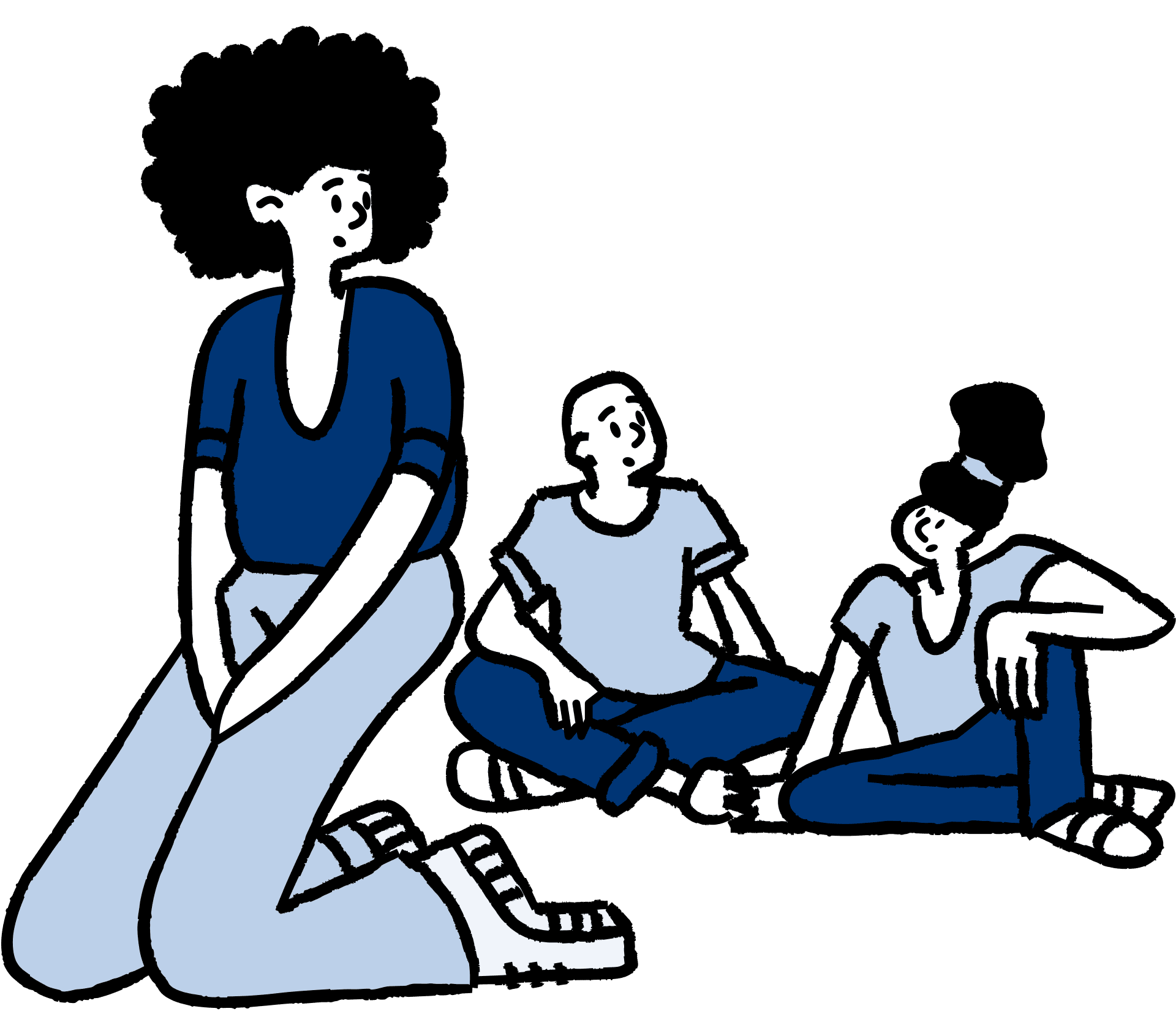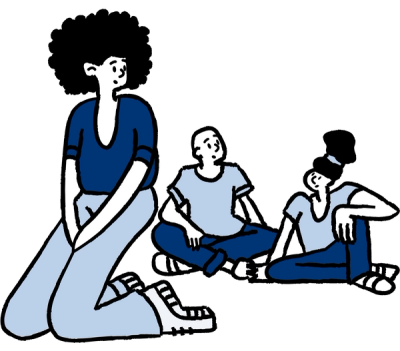Long-term strategies for managing feelings of loneliness
Below are a number of strategies you can use to address feelings of loneliness in the long term. Remember, what works for one person might not work for another – so try a few and see what works for you. For most people, a combination of different strategies is the most effective approach.
- Go at your own pace
If you’ve been lonely for a long time, some of the suggestions below might feel like too much. Opening up to someone or talking to a stranger can be terrifying. It’s important to only bite off what you can chew and to go at your own pace, so we’d recommend starting with something small.
You could try connecting with an online community, spending time with animals, or organise to connect with just one person in a familiar place first.
As your confidence grows, you can take the next stepping stone and try something a little more challenging.
- Practice vulnerability
- Be curious about others
- Learn and practice social skills
Fake it ‘till you make it
The old saying ‘fake it until you make it’ is absolutely true for social skills. From small talk to public speaking, “acting out” or “performing” is a great way to try something that feels uncomfortable. You might like to watch someone else who does it well, or even consult a movie or some youtube videos to see how other people do it well.
The first time you try and ‘fake it’ will probably feel awkward and unnatural, and that’s totally fine - the important part is that you tried. Once you’ve ‘faked it’ a few times, you’ll realise that you can do it, even when it’s hard and challenging. This will increase your confidence, which will gradually make it easier, until suddenly one time you realise that you don’t have to fake it anymore. ‘Faking it’ allows you to acknowledge the discomfort it takes to try something new, but does not let it hold you back from trying.
- Prioritise people
Find ways to spend time with people
Deep relationships don’t happen overnight. They take tens, or hundreds of hours spent together. It’s no coincidence many long-term friendships come our of school, university, work or shared experience.
It also helps to have mutual interests, to laugh and play together, and to talk about things that are more important and meaningful to us, rather than small talk.
Developing new relationships means finding situations where you will have the opportunity to spend extended periods of time with people. Below are some examples of how you can do just that:
- Try volunteering
- Join a club, organisation, or online community
Other strategies
- Try small acts of kindness
- Try a walking routine
- Get social online
Although connections in the natural world are generally better at combating feelings of loneliness, sometimes online connections can be a good option too. Particularly if:
- Natural-world connections make you feel anxious or feel too challenging to start with (if so, it’s important you work towards tackling natural-world interactions eventually).
- Your health or physical ability makes getting out and about challenging.
- You’re in a regional or remote area.
- Your family or friends are far away.
- There aren’t real-world communities for your interest or hobby around you.
Online communities can be just as supportive, nurturing and long-lasting as natural-world ones. Online communities also enable you to connect with people around the world with niche interests, or to do things that work best online (like play online games together).
Here are some ideas for socialising with people online:
- Play a multiplayer game. For example, you could start a Words With Friends game with a friend or family member.
- Start a group chat and share some photos with extended family
- Join an online forum dedicated to people experiencing loneliness
- Join a live online event or conference
- Get an app that has a social aspect to it. For example, many fitness apps encourage their subscribers to get involved in challenges together.
"Sometimes, I think my friends from my online hobbies are better friends than the friends that I met in the “real world”."
- Spend time with animals
- Consider therapy
What should you do if you’re still feeling lonely?
If you’ve tried to make yourself feel better but nothing has worked, or if you’re feeling hopeless and discouraged, remember Lifeline is always available.
There are also a number of support services that are available to help, including ‘FriendLine’, established specifically to help with social connection.
Sometimes, even when you know what may make you feel better, it can be difficult to muster the courage and motivation to go ahead and do it. It can help to talk about what’s holding you back and get support from someone who understands and can meet you where you’re at.
Click here to download, save, or print our loneliness fact sheet.





